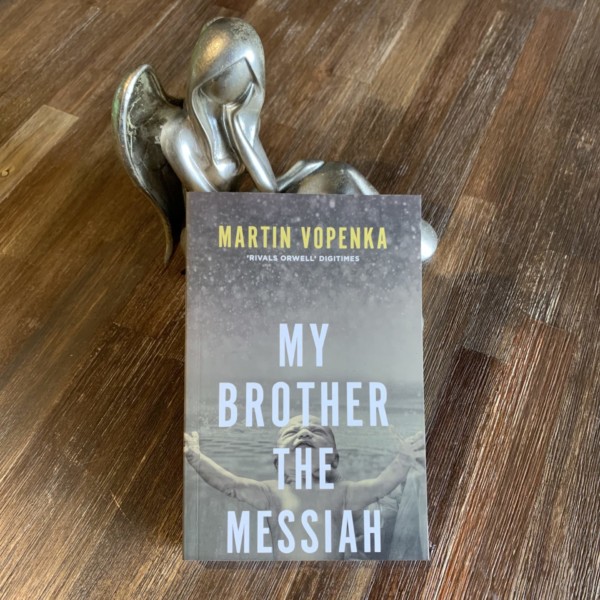Martin Vopenka vs Cory Doctorow and Kim Stanley Robinson
January 12, 2022

We’re proud to share that the British Science Fiction Association took on My Brother the Messiah, Martin Vopenka’s provocative sci-fi that combines technology, religion and human nature itself. It’s a stellar review that you can read in full here
I was most struck by Matt Colborn’s comparisons of Vopenka and other titans of modern sci-fi literature, namely Cory Doctorow and Kim Stanley Robinson. He writes:
‘The style and tone of this novel contrasts significantly with some dominant voices in English-language SF. It’s instructive comparing Vopenka’s style with recent US utopian novels like Kim Stanley Robinson’s Ministry of the Future (2020) and Cory Doctorow’s Walkaway (2017). The moral universe of the US novels seems broadly far less ambiguous than the one presented in My Brother the Messiah.’
This final statement is deserving of some elaboration.
In The Ministry of the Future and Walkaway, the salvation of Earth’s people lies in technological advancement. The Ministry of the Future advocates geoengineering, which means altering the planet with technology to fight climate change. In Walkaway, highly advanced 3D printing undermines the power of an oppressive oligarchy.
This technocentric worldview is common in western Europe and America, I think – particularly when we conceptualise the climate crisis. We’re bombarded with information about harnessing green energies, and developing ever-improving recycling or waste apparatuses.
In My Brother the Messiah, such optimism is gone. The technocratic governments are ineffective or exacerbate the problems of Vopenka’s dying world. What’s striking about this is that it’s not pessimism, it’s grounded realism; technology hasn’t always been our salvation. The very mission of creating a utopia has caused some of our darkest days in history.
Modern sci-fi writers sometimes craft future worlds that are almost ‘post-religion’. Often, religion is used as a metaphor for complacency or ignorance; it’s conceptualised as the antithesis to technological progress. This couldn’t be farther from the case in My Brother the Messiah. Here, the spiritual movement centring on the ‘messiah’ Eli is multifaceted. It explores conviction and doubt, science and faith. It explores the internal dynamics of the religion and its public perception. Technology and religion are inextricably intertwined. These people have found faith not because they have betrayed rationalism, but because rationalism has betrayed humanity.
My Brother the Messiah challenges the entanglement of technology and salvation, and undermines the dichotomy of science and religion. This greyness is the fabric of our world today; that’s what makes this speculative sci-fi so special.
Read some more reviews of My Brother the Messiah here, or buy it here.
by George Biggs



